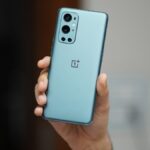
In 2013, it was discovered that many top tier OEMs were cheating in popular benchmarking apps by putting their Android devices into an overdrive mode. Since being publicly caught and shamed, many OEMs removed such behaviour from their devices. However, a new investigation from XDA folks reveals that some companies continue to indulge in such practices even now.
More specifically, the team at XDA discovered that the OnePlus 3T boosts the base clock of its small and big cores to 0.98GHz and 1.29GHz, respectively, even when the CPU load was 0 percent with certain benchmarking apps open. In comparison, the CPU clock speed would quickly drop down to 0.31GHz — the base clock of the Snapdragon 821 chipset — to preserve battery life with other apps open.
After further testing with a ‘secret’ version of Geekbench, it was discovered that OnePlus specifically boosts the base clock speed of the Snapdragon 821 chipset when benchmarking apps like Geekbench, AnTuTu, Quadrant, Vellamo, and GFXBench are open. This “feature” was a part of HyrdogenOS and only recently made its way to OxygenOS when OnePlus merged the base source code of both OSes. While running the ‘secret’ build of Geekbench resulted in the same scores as the regular version, there was quite a difference in the thermal performance of the phone while running the two version of the benchmark. The temperatures while running the secret build were lower when compared to the version available on the Google Play Store thereby indicating that OnePlus is also boosting the thermal performance of the OnePlus 3T while running specific benchmarking apps.
Meizu was also caught cheating in benchmarks, with its Pro 6 Plus handset switching exclusively to power hungry A72 cores when running certain apps. This results in a huge disparity in results when compared to running the benchmarks on the phone in ‘normal’ mode.
The OnePlus 3T is still an excellent phone by all means, and OnePlus cheating in benchmark apps should not really deter anyone from buying this excellent handset. The same cannot be said about Meizu’s Pro 6 Plus handset though, which is why you should never really buy a device based solely on its benchmark scores.
OnePlus has also promised that it will stop targeting benchmarking apps in the future, though it will continue to use this trick for certain heavy games. The ‘feature’ will be removed from OxygenOS through a future OTA update.
[Via OnePlus]


















